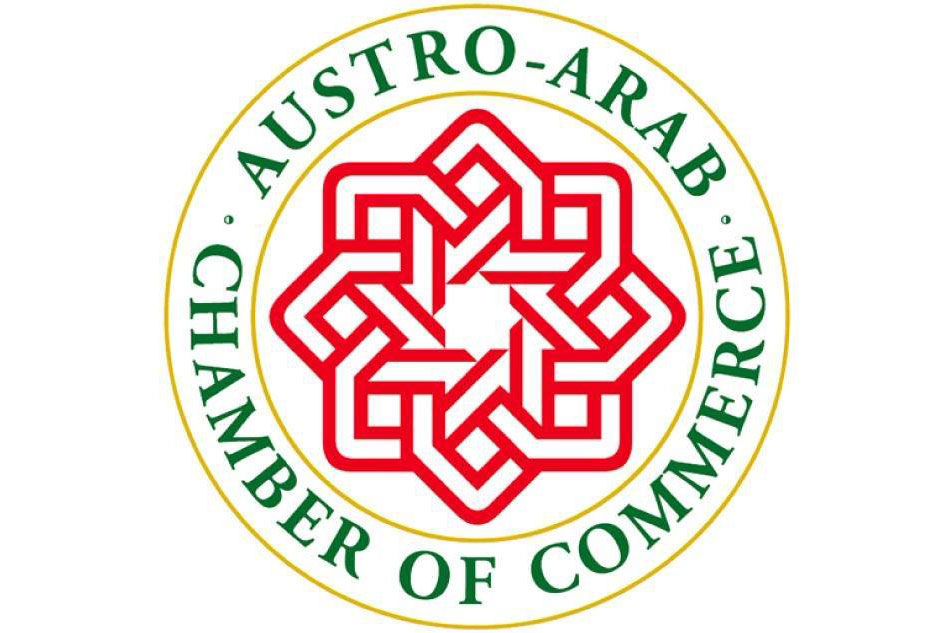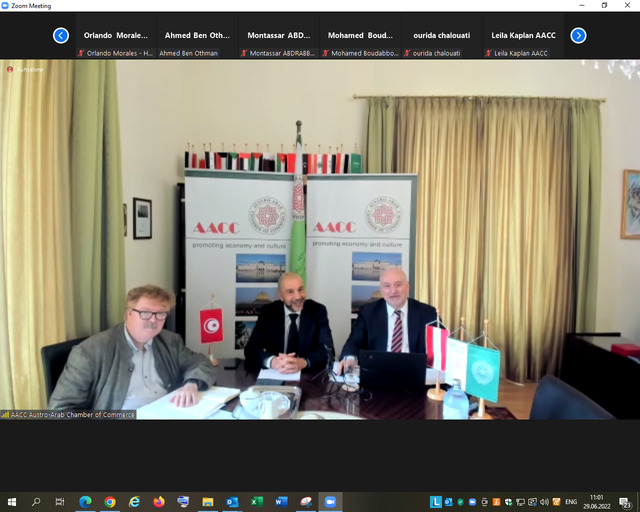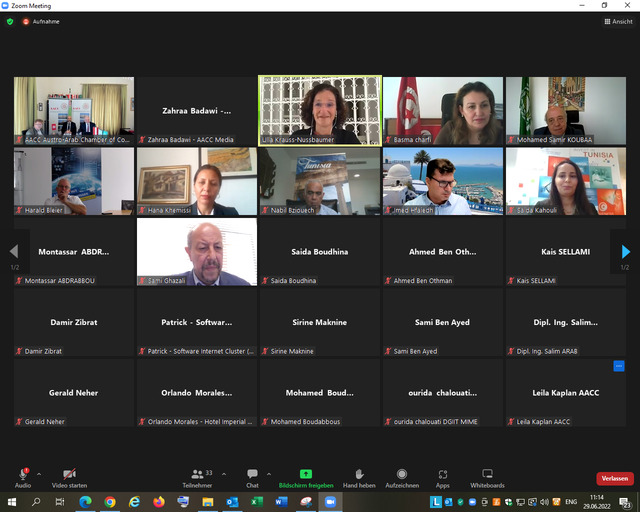Sponsored Content
Virtual Economic Forum between Tunisia and Austria
A Virtual Economic Forum titled "Tunisia & Austria - Promoting Business & Investment Cooperation", was held online by the Tunisian Embassy in Vienna and the Austro-Arab Chamber of Commerce (AACC) in collaboration with the Tunisian Foreign Investment Promotion Agency (FIPA Tunisia).
 The Austro-Arab Chamber of Commerce (AACC) specialised in providing services, networks and information to businesspeople, companies and institutions in Austria and the Arab countries. / Picture: © Austro-Arab Chamber of Commerce (AACC)
The Austro-Arab Chamber of Commerce (AACC) specialised in providing services, networks and information to businesspeople, companies and institutions in Austria and the Arab countries. / Picture: © Austro-Arab Chamber of Commerce (AACC)

 © © Austro-Arab Chamber of Commerce (AACC)/ Screenshot" data-cnt="2" data-full="Y" />
© © Austro-Arab Chamber of Commerce (AACC)/ Screenshot" data-cnt="2" data-full="Y" />The webinar provided an opportunity to inform institutions and companies from Austria and neighboring countries about Tunisia's business environment.
High-level officials from various Tunisian ministries (communication technologies, digital economy, industry, etc...) attended the webinar to provide information on business and investment cooperation opportunities in Tunisia,…
or Log In
Fast News Search





